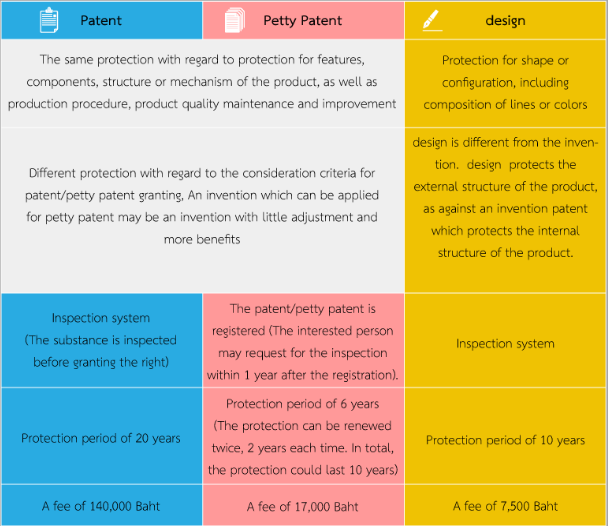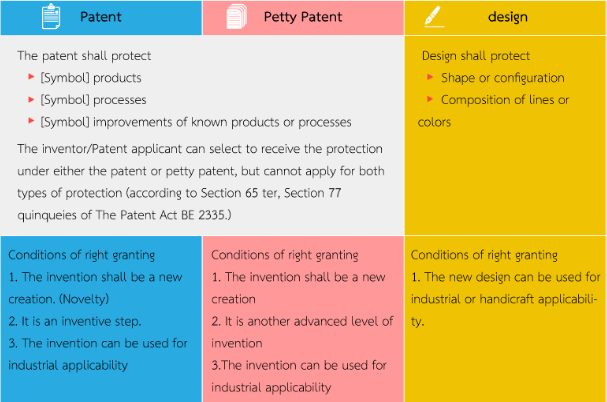Other Legal Issue
Select your options
Currency Regulation
Non-residents
Thai emigrants who are permanent resident abroad or working abroad, foreigners temporarily staying in Thailand for not more than 3 months, foreign embassies, international organizations, including their staff with diplomatic privileges and immunities, may normally bring foreign currency and negotiable instruments into Thailand without limit. They may also freely take out of the country all foreign currency they had brought in, without limit. There is no restriction on the amount of Thai currency that can be brought into the country. A person traveling to Vietnam, the People's Republic of China (only Yunnan province) and Thailand's bordering countries is allowed to take out up to 2 million Baht. Taking out Thai Baht bank notes in an amount exceeding 450,000 Baht requires declaration to a Customs Officer. A person traveling to other countries is allowed up to 50,000 Baht.
Residents
There is no restriction on the amount of foreign currency a resident may bring into Thailand. However, all such currency must be sold to, or deposited into a foreign currency account with an authorized bank within 360 days of receipt or entry into the country.
Investors
There is no restriction on the amount of foreign currency transferred into Thailand for direct or portfolio investments. Such foreign currency, however, must be sold or deposited into a foreign currency account with an authorized bank, within 360 days from the date of receipt or entry into the country. Repatriation of investment funds and repayment of overseas loans, are freely permitted subject to submission of supporting document to an authorized bank.
Please note that any person who brings into or takes out of Thailand foreign currency bank notes or coins in an aggregate amount exceeding 20,000 US Dollars or equivalent at market rate must declare such funds to Customs Officer. Furthermore, any transaction involving the sale, exchange, withdraw or deposit foreign currencies in an amount exceeding 50,000 US Dollars or its equivalent shall be reported to an authorized bank in a Foreign Exchange Transaction Form as prescribed by the Competent Officer.
Source :
| BOT : EXCHANGE CONTROL REGULATIONS IN THAILAND | link |
Bank Accounts
- Deposit
Trading
Source :
| BOT: Exchange Control Regulations in Thailand | link |
Land Ownership
Source :
| Land Code Act B.E.2479 (1936) as of November 2018. | link |
| Property Law in Thailand : Land ownership | link |
Stock Exchange of Thailand
Source :
| Stock Exchange of Thailand | link |
Select your options
Copyrights©
- With regard to a literary work, it shall include a translation, a transformation or a collection by means of selection and arrangement,
- With regard to a computer program, it shall include a reproduction by means of transformation, modification of the program for the substantial part without the appearance of creating a new work,
- With regard to dramatic work, it shall include the transformation of a non-dramatic work into a dramatic work or dramatic work to a non-dramatic work, whether in the original language or in another language,
- With regard to artistic work, it shall include the transformation of a two-dimensional work or a three - dimensional work into a three-dimensional work or a two-dimensional work respectively, or the making of a model from the original work,
- With regard to musical work, it shall include an arrangement of tunes or an alteration of lyrics or rhythm.
- Research or education, without any commercial purposes
- Use for one’s own benefit or for the benefit of himself and a member of one’s own family, or close relatives;
- Comment, criticism or recommendation of the work, with recognition of the copyright ownership of such work;
- Presenting news or otherwise reporting through the mass media, with recognition of the copyright ownership of the work;
- Reproduction, adaptation, performance or presentation for a court hearing or consideration by competent and authorized officers or for reporting on the outcome of such hearing or consideration;
- Copying, duplicating or adapting parts of the work, or making extracts or summaries, by teachers or by educational institutions for the purpose of distributing or selling to students in school classes or in educational institutions, provided that such activities are not for commercial purposes;
- Use of the work as parts of questions and answers in examinations.
- The amended Copyright Act provides an exception for reproduction or adaptation of copyright works for the benefit of disabled persons is not considered copyright infringement, provided it is for non-profit purposes.
- Circumventing technological protection measures where circumvention is allowed is also permitted under the amended Copyright Act – for example, circumvention for the purpose of testing security problems of computer systems.
- Daily news and facts that are, by nature, merely news items;
- The Constitution and laws;
- Announcements, orders and regulations of ministries, bureaus, departments or any other agency of the state or local jurisdiction;
- Court judgments, orders, rulings and official reports;
- Translations and collections of those items specified as above which are prepared by government agencies or local administrations.
Source :
| Copyright Act B.E. 2537 (1994) | link |
Patent
What is patent?
Patent means an important document which a government Service (DIP) issues to protect the invention or product design with characteristics in compliance with the legal requirement. It is a kind of privilege granted or a grant of exclusive rights to the inventor or product designer, so that he solely has the right to produce and distribute such product for a limited time.
Invention means creativity about appearance, element, structure or mechanisms of a product, as well as procedure for production, maintenance or quality development of such product, or procedure to re-produce a new and different product which offers a technical solution that is not easy to figure out, such as mechanism of a machine, medications, preservation methods for vegetable or fruit, etc.
Petty Patent means an important document which a government Service (DIP) issues to protect the invention. The invention protected under the petty patent is similar to invention in the previous paragraph, except it is creativity with a moderate technological development or low level of innovation with some more utilization, including procedure for production, maintenance or quality development of such product, or procedure to re-produce a new and different product which offers a technical solution that is not easy to figure out such as mechanism of a machine, medication, preservation method for vegetable or fruit, etc.
Patent Cooperation Treaty [PCT]
PCT or Patent Cooperation Treaty is an international treaty to facilitate the international patent application. The treaty shall lessen burdens, procedures, and expenses of applicants who apply for the protection abroad.
In fact, PCT is not a patent registration system, as patent registration is under the sovereignty of each country where the applicant applies for patent protection. PCT requires inspection according to procedure and legal requirements in the country prior to acceptance for registration. Thailand becomes the 142nd member of PCT on 24 September 2009..
Comparison between Patent, Petty Patent, and Design
Protection of Patent / Petty
Principle, method, and condition of application submission and consideration criteria
1. An invention is new, that is, the invention has never been widely distributed or used in Thailand prior to the application submission date. Or the invention subject matter has never been disclosed prior to the application submission date, or the invention subject matter has never been disclosed prior to the application submission date in or outside the Kingdom of Thailand (Except the invention was displayed in an international exhibition or the public showcase held by a government agency.
However, the applicant must apply for its registration within 12 months of the first day of the exhibition or showcase and the certification from the exhibition or showcase organizer must be presented.)
2. It involves the inventive step (only for the patent). It is not a simple invention which can be done by anyone with basic knowledge for such a task. Or the invention is an unprecedented technical solution.
3. The invention can be used for it is capable of industrial application.
The invention which cannot be patentable as follows:
1. Micro-organism and any component of the micro-organism naturally-existing in animal, plant or extracts from animal or plant.
2. Scientific or mathematic principle and theory.
3. Database for computer functions.
4. Diagnosis and treatment methods for diseases in humans or animals.
5. The invention that contradicts public order, morality, hygiene or welfare.
Information by department of intellectual property, Last Updated 24 May 2016
Source :
| DIP: ASEAN Patent Examination Co-operation (ASPEC) | link |
| DIP: JPO-DIP Patent Prosecution Highway (PPH) | link |
Trademarks™
Information by department of intellectual property, Last Updated 14 Sep 2016
Source :
| DIP: Conditions of application submission | link |
| DIP: Fees | link |
| DIP: Laws and regulations | link |
Thailand Trust Mark
- The applicant has to be a juristic person that has registered as a member of the Department of International Trade Promotion’s Exporter List. Type of members could be categorized into 5 groups: Exporter Lists (EL), Pre-Exporter (Pre-EL), Trading Company (TDC), Pre-Trading Company (Pre-TDC) and DITP SMEs Club. Moreover, export value of the past 5 years should be the average per year not less than 3 million baht. Further information could be found from topic of the participation of export activities or here.
- The applicant has been certified with local and/or international standards for the applicant’s products and services in accordance with the regulations or other standards that determine the quality of the products. See Lists of names’ standard here
- The applicant’s products and services must be made in Thailand. (The products are produced locally or services are provided locally.)
- The applicant has no record of bad business conduct, for example, intellectual property infringement or producing pirated and counterfeit goods and brands.
- The applicant should have following good image and business/corporate value:
- Food Industry, Agricultural products, Fresh fruit and vegetable and processed fruit and vegetable, Fresh sea food and processed seafood, Livestock products
- Heavy industry, Electrical appliances and electronics, Automotive products, Equipment and components, Construction goods, Plastic resin products, Mechanical products and components
- Livestyle industry, Furniture and parts, Tableware and kitchen goods, Toys goods, Gifts items, Home decoration and home textiles.
- Fashion industry, Gems and jewelry, leather goods and shoes, fashion goods and textile.
- Other industry, Medical instruments, Pharmaceutical products, Cosmetics products and Spa products.
- Medical services business
- Health promotion services business (Spa), Spa and Thai massage, Beauty services, Health services
- International education services business
Source :
| TTM: Applying for Thailand Trust Mark | link |
| DITP: Member registration with Department of International Trade Promotion | link |


